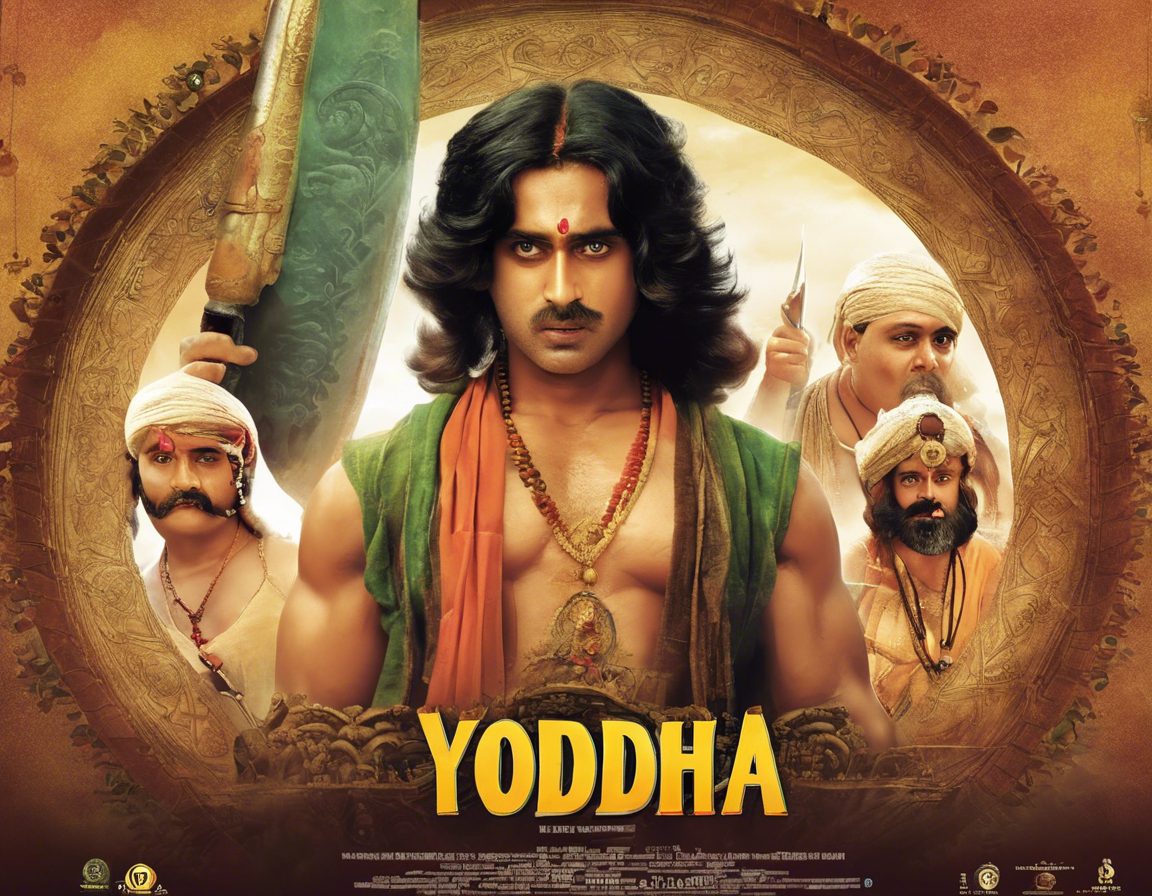Introduction:
Yodha: The word itself carries a sense of mystique, power, and honor. Derived from ancient Sanskrit, Yodha simply means a warrior or a hero, someone who exhibits courage and strength in the face of adversity. In this modern era, the term Yodha has transcended its traditional roots and has become synonymous with various forms of popular culture, including movies, video games, and literature.
The Rise of Yodha in Cinema:
Cinematic representations of Yodha: Throughout the history of cinema, the archetype of the Yodha has been a mainstay across various genres and cultures. From classic Hollywood swashbucklers to the epic martial arts films of Asia, the Yodha has captivated audiences with their skill, bravery, and charisma. Characters like Indiana Jones, James Bond, and Wonder Woman embody the spirit of the Yodha in their quests for justice, adventure, and redemption.
Exploring the Origins of Yodha: The concept of the Yodha can be traced back to ancient mythologies and folklore from around the world. In Indian epics like the Mahabharata and Ramayana, figures like Arjuna and Rama exemplify the virtues of the Yodha through their valor in battle and their unwavering commitment to dharma (duty). Similarly, in medieval European tales of chivalry, knights like King Arthur and Sir Lancelot embody the ideals of courage, loyalty, and honor.
The Modern Yodha:
Characteristics of a Yodha: In contemporary cinema, the Yodha has evolved to encompass a diverse range of characters, each with their own unique traits and motivations. Whether it’s a suave spy navigating a world of intrigue and danger or a skilled martial artist seeking vengeance for a fallen loved one, the modern Yodha continues to inspire audiences with their strength, resilience, and humanity.
Evolution of the Yodha Archetype: As storytelling techniques and visual effects have advanced, so too has the portrayal of the Yodha onscreen. From the wire-fu acrobatics of Hong Kong action cinema to the gritty realism of modern superhero blockbusters, filmmakers have pushed the boundaries of what it means to be a Yodha in the digital age. With the rise of computer-generated imagery (CGI) and motion capture technology, filmmakers have been able to create larger-than-life spectacles that bring the epic battles and heroic deeds of Yodhas to life in ways never before possible.
The Impact of Yodha Films:
Cultural Influence: Yodha films have not only entertained audiences but have also had a profound impact on popular culture and society at large. Characters like Luke Skywalker, Katniss Everdeen, and Black Panther have become symbols of courage, hope, and resistance in the collective imagination of viewers around the world. Their stories of perseverance and heroism have inspired countless fans to stand up for what they believe in and to fight for a better tomorrow.
Empowerment and Representation: One of the most significant aspects of Yodha films is their ability to empower and uplift marginalized communities. By featuring protagonists from diverse backgrounds and identities, Yodha films have challenged traditional stereotypes and provided audiences with a new vision of heroism that celebrates difference and inclusivity. From female warriors breaking barriers in male-dominated genres to superheroes of color challenging the status quo, Yodha films have paved the way for greater representation and diversity in the entertainment industry.
The Future of Yodha Cinema:
Continuing the Legacy: As we look to the future, the legacy of the Yodha in cinema shows no signs of slowing down. With new technologies and platforms emerging every day, filmmakers have more tools than ever to tell compelling stories of heroism, adventure, and sacrifice. Whether it’s through virtual reality experiences, interactive storytelling, or immersive 3D environments, the possibilities for the Yodha genre are limitless.
Conclusion:
In conclusion, the concept of the Yodha has been a timeless source of inspiration and entertainment in the world of cinema. From ancient mythologies to modern blockbusters, the Yodha archetype continues to captivate audiences with its tales of valor, resilience, and heroism. As we continue to push the boundaries of storytelling and visual effects, the legacy of the Yodha in cinema will undoubtedly endure, inspiring new generations of filmmakers and audiences to embrace the spirit of the warrior-hero in all its forms.
FAQs:
1. What does “Yodha” mean in the context of cinema?
In the context of cinema, “Yodha” refers to a warrior or hero archetype characterized by courage, strength, and a sense of duty. Yodha films often feature protagonists who exhibit exceptional skills in combat, intelligence, or leadership.
2. Are there specific cultural origins of the Yodha archetype in cinema?
The Yodha archetype in cinema draws inspiration from various cultural traditions and mythologies, including Indian epics like the Mahabharata, Western tales of chivalry, and Asian martial arts legends.
3. How has the portrayal of Yodhas evolved over time in film?
The portrayal of Yodhas in film has evolved to encompass a diverse range of characters with unique traits and motivations. From classic swashbucklers to modern superheroes, Yodha characters continue to captivate audiences with their heroism and humanity.
4. What impact have Yodha films had on popular culture and society?
Yodha films have had a significant impact on popular culture by inspiring audiences with stories of courage, hope, and resistance. These films have also empowered marginalized communities by challenging stereotypes and promoting diversity and inclusivity.
5. What does the future hold for Yodha cinema?
The future of Yodha cinema is bright, with filmmakers exploring new technologies and storytelling techniques to push the boundaries of the genre. Virtual reality, interactive storytelling, and immersive environments offer exciting new opportunities for Yodha films to continue captivating audiences for years to come.
